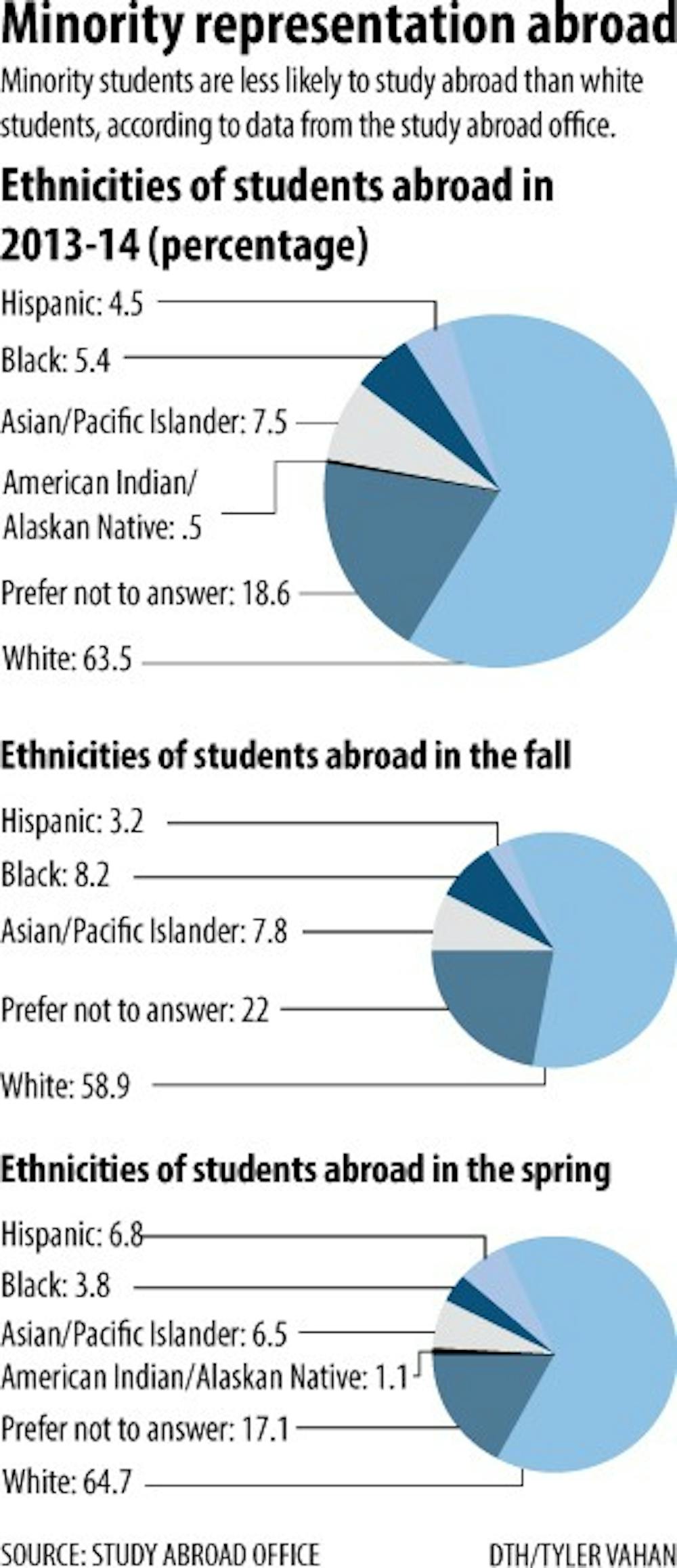“It’s a combination of getting minorities information and them knowing what to do with it.”
But Mark Nielsen, information systems director for the study abroad office , said the ethnic breakdown of students participating in study abroad is not significantly different from the ethnic breakdown of UNC’s campus.
“Many years ago, I checked these stats with those published by the University, and they weren’t so far out of line with the purported ethnic breakdown of the undergraduate population,” Nielsen said.
Nielsen noted that the most underrepresented group in study abroad at UNC is not an ethnic group, but gender.
“Females outnumber males studying abroad almost two to one, which is out of line with the UNC population.”
Miles said about 20 to 30 percent of students do not report their ethnicity, and Nielsen added that the numbers could change slightly due to summer programs still accepting applicants.
In addition to difficulties for minority students, rising costs have caused many to forgo studying abroad, unless they receive financial aid.
Michael Macgregor , who will be traveling to Hong Kong with the Kenan-Flagler Business School this summer, was offered the Phillips Ambassador scholarship, which paid half of his tuition.
“It was either I would get some financial aid, or I wouldn’t go abroad anywhere,” he said.
“I feel like going abroad is one of the best opportunities that UNC has to offer, so the school should invest more in scholarship opportunity. Just being out of a classroom offers up so much potential to learn outside your comfort zone.”
Sophomore Kathleen Harris , who will be studying abroad in Spain this summer, echoed his sentiments.
“I was offered a stipend to do a summer project ... but I wouldn’t have been able to do a summer program studying abroad if it weren’t for the stipend,” Harris said.
To get the day's news and headlines in your inbox each morning, sign up for our email newsletters.
“Money is obviously important, but I feel like UNC has a lot of options available that make it affordable. I think UNC does a good job to include a wide variety of scholarships and funding to allow for study abroad.”
Students often have a misconception about the costs of the study abroad opportunities, overlooking opportunities where the costs are equal to tuition, Miles said.
The College of Arts and Sciences provided $657,500 during the 2013-14 school year for 147 students to study abroad, he said.
“We offer many student exchange programs in collaboration with partner universities,” he said. “A UNC student who enrolls in a student exchange program will continue to pay UNC tuition.”
The study abroad office is aware of the issue of cost and attempts to address it by reducing the expenses through private funding and financial grants, said Senior Associate Dean for Global Programs Jonathan Hartlyn.
Despite the cost factor, UNC continues to ship numerous students overseas.
“Today, Carolina has one of the highest student participation rates in study abroad among public universities nationwide,” Hartlyn said. “About one-third of our students study abroad before they graduate.”
university@dailytarheel.com




